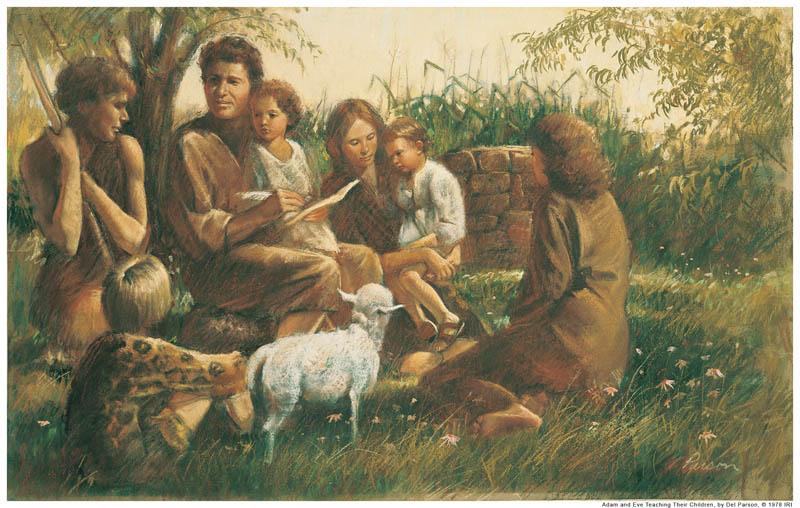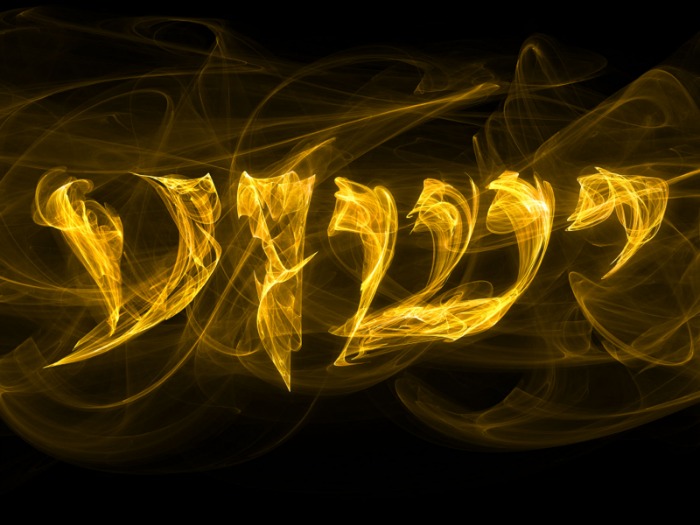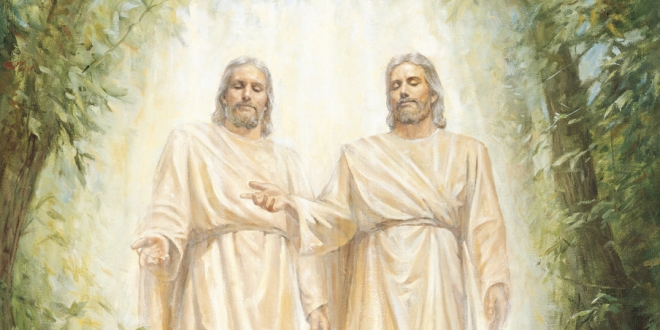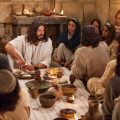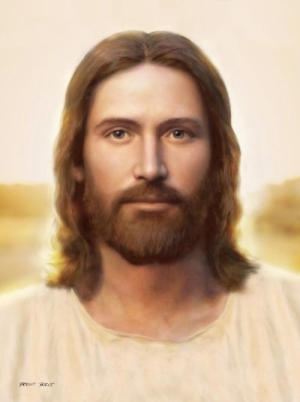Gramps,
I am a convert and I have new issues coming up in my Gospel Principles class. We have been talking about Adam in his pre-mortal life, that his name was Michael. And also that Jesus was Jehovah in the old testament. Can you explain this to me, and are there any scriptures I can read on this? When you are taught one thing for 30 years, it is very hard to un-learn and re-learn again.
Melissa, from Orem, Utah
Dear Melissa,
I can appreciate the problems associated with giving up cherished beliefs that one has had for a lifetime in order to accommodate the newly learned truths of the gospel of Jesus Christ. I’m sure that you tend to feel comfortable with the new truths that you learn as they are confirmed in your heart and mind by the Holy Spirit of Promise. Nevertheless, conversion to new concepts is always a difficult process. Our last recourse in considering these differences in belief is to be found in the scriptures and in the words of the prophets. Although the truths are clearly evidenced in the scriptures, depending on the prior belief system, they were either never brought up for discussion, or were explained in a different way. Let’s look first at the name of Adam, the progenitor of the human family. This from the Doctrine & Covenants—
Three years previous to the death of Adam, he called Seth, Enos, Cainan, Mahalaleel, Jared, Enoch, and Methuselah, who were all high priests, with the residue of his posterity who were righteous, into the valley of Adam-ondi-Ahman, and there bestowed upon them his last blessing. And the Lord appeared unto them, and they rose up and blessed Adam, and called him Michael, the prince, the archangel (D&C 107:53-54).
And again, the voice of God in the chamber of old Father Whitmer, in Fayette, Seneca county, and at sundry times, and in divers places through all the travels and tribulations of this Church of Jesus Christ of Latter-day Saints! And the voice of Michael, the archangel; the voice of Gabriel, and of Raphael, and of divers angels, from Michael or Adam down to the present time, all declaring their dispensation, their rights, their keys, their honors, their majesty and glory, and the power of their priesthood; giving line upon line, precept upon precept; here a little, and there a little; giving us consolation by holding forth that which is to come, confirming our hope! (D&C 128:21)
Here is a definitive statement by Elder Russell M. Nelson of the Council of the Twelve—
“Latter-day revelation affirms that Michael (known also as Adam; see D&C 27:11; D&C 107:54; D&C 128:21) participated in the process of creation as well” (Elder Russell M. Nelson, The Creation, Ensign, May 2000, p.84)
And now to the correlation of the names Jesus Christ and Jehovah. This is a little more involved, but we’ll start from the Bible to develop a couple of points. Let’s identify some definitions. The name, Jehovah, comes from the Hebrew, Yhovah {yeh-ho-vaw’} which signifies “the existing one.” Others have told me that Yhovah is composed of the roots of the past, present and future of the verb “to be.” Yeh, ho, vaw, in English would literally be ,was, is, and will be, which expresses the concept of never ending, or eternal. If one looks at Figure 1 of Facsimile 2 in the Book of Abraham we read the term, “Jah-oh-eh.” which is defined by the Egyptians as one day on the planet Kolob, or 1000 years of earth time–a related concept to perhaps a fundamental unit of time in the celestial realm.
The first time that the word, Jehovah, is used in the Old Testament is in Exodus 6:2-3
And God spake unto Moses, and said unto him, I am the LORD: And I appeared unto Abraham, unto Isaac, and unto Jacob, by the name of God Almighty, but by my name JEHOVAH was I not known to them.
This phrase contains an interesting nuance– The word, Lord, is used in the Old Testament in two forms: one, with only the first letter capitalized, and two, with the entire word capitalized. When the entire word is capitalized, as in Ex 6:2, above, it is translated from the Hebrew, Yhovah. This is done to avoid the too frequent repetition of the word, Jehovah. (The word, Jehovah, appears in the English version of the Old Testament only four times). The word, Lord, in the Old Testament, is translated from the Hebrew, Adonay, which could be used to denote a person of high estate.
With that background let’s go to Zechariah 12:8-10—
8 In that day shall the LORD [Jehovah] defend the inhabitants of Jerusalem; and he that is feeble among them at that day shall be as David; and the house of David shall be as God, as the angel of the LORD [Jehovah] before them.
9 And it shall come to pass in that day, that I [Jehovah] will seek to destroy all the nations that come against Jerusalem.
10 And I [Jehovah] will pour upon the house of David, and upon the inhabitants of Jerusalem, the spirit of grace and of supplications: and they shall look upon me [Jesus Christ] whom they have pierced, and they shall mourn for him [Jesus Christ], as one mourneth for his only son [Jesus Christ], and shall be in bitterness for him [Jesus Christ], as one that is in bitterness for his firstborn [Jesus Christ].
Here are a few references from some of the general authorities of the Mormon Church—
“From cover to cover, the Holy Bible teaches and testifies of Christ. He is Jehovah of the Old Testament, Messiah of the New.9 The Book of Mormon, another testament of Him, was compiled, preserved, and brought forth for the express purpose of convincing Jew and Gentile that JESUS is the CHRIST, the ETERNAL GOD, manifesting himself unto all nations” (Bishop Keith B. McMullin, Ensign, May 2004, p.33)
“To remember and know Jesus Christ is to know He is the Jehovah of the Old Testament and the Jesus Christ of the New Testament. He was the firstborn spirit child of Heavenly Father and the Only Begotten in the flesh (Elder Robert D. Hales, Ensign, November 1997, p.24).
“Jesus Christ was and is Jehovah of the Old Testament, the God of Adam and of Noah, the God of Abraham, Isaac, and Jacob. Jehovah appeared to and talked to the ancient prophets. When He spoke He did so on behalf of the Father, and He said what His Father would have said. Jehovah of the Old Testament became Jesus Christ of the New Testament when He was born into mortality (Elder Robert E. Wells, Ensign, November 1995, p.65)
Gramps

